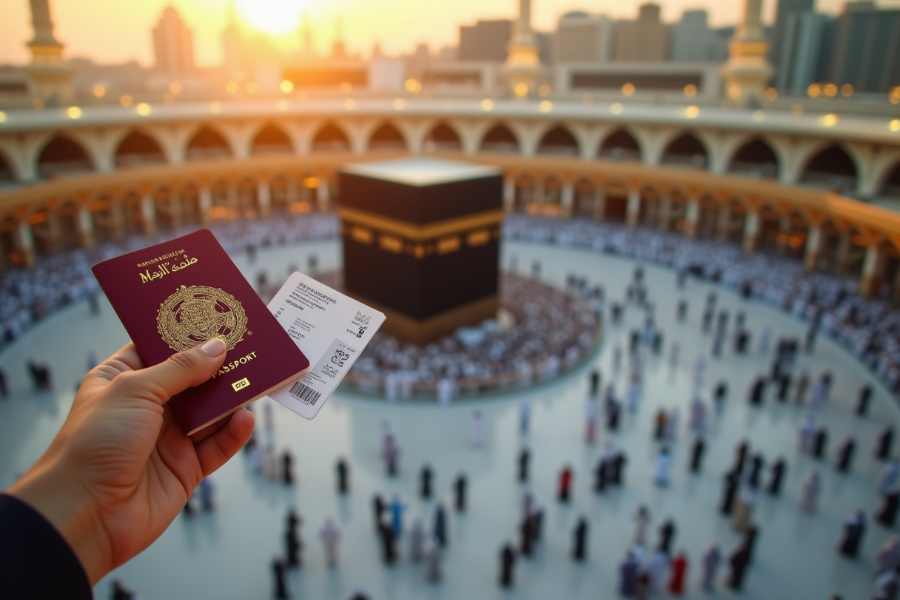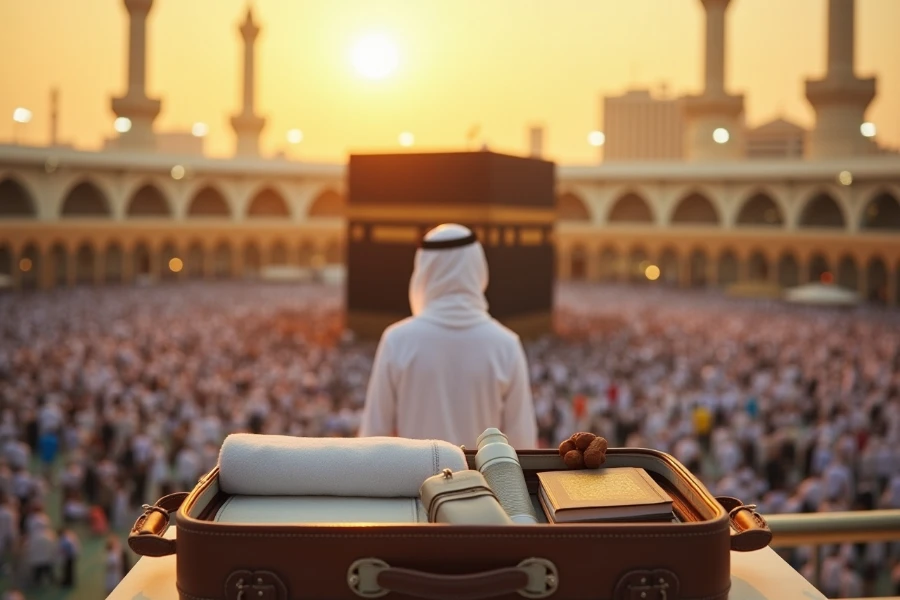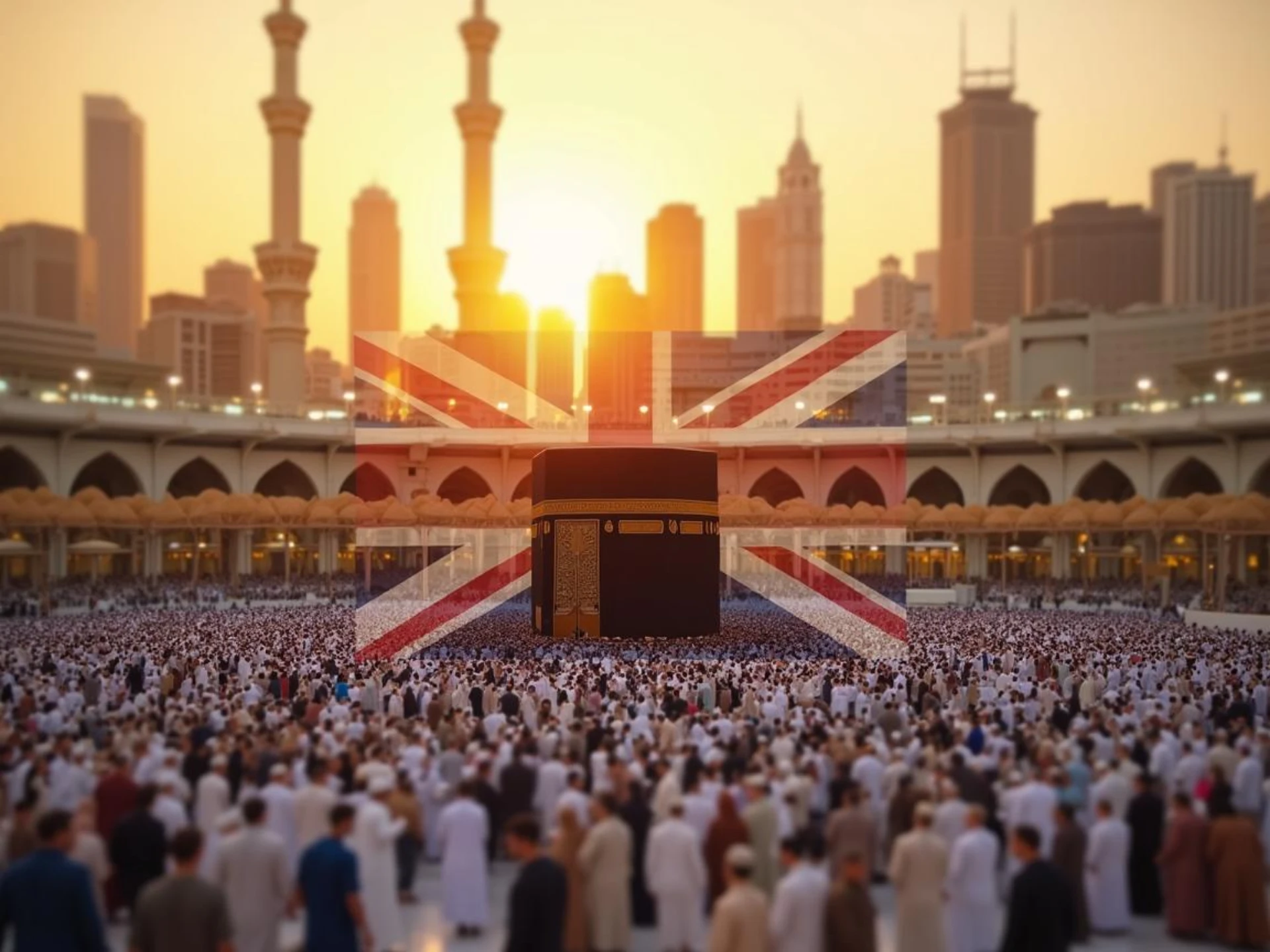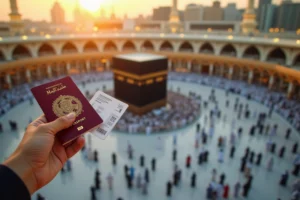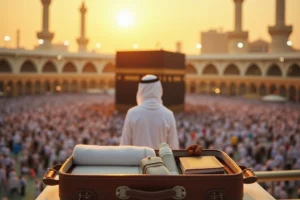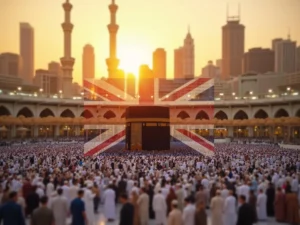Hajj and Umrah are important trips that follow the route taken by the Prophet Muhammad (peace be upon him). To have a good experience, here are some simple tips about Ihram clothes and general rules.
Getting ready and having both spiritual and practical knowledge is important for a successful and smooth journey on a pilgrimage. These tips and suggestions will help people doing Hajj and Umrah make the most of their time in Makkah.
What to Wear in Makkah?
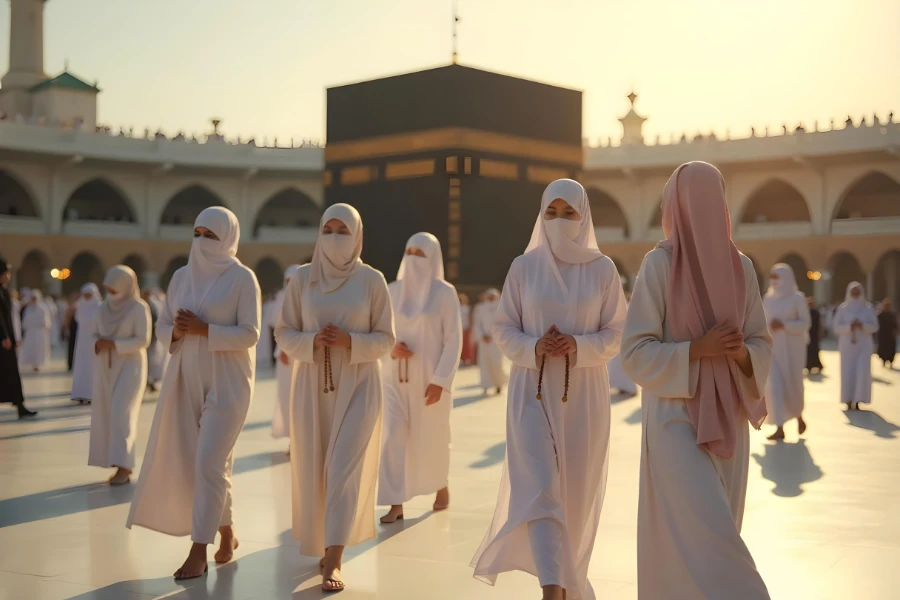
Saudi Arabia is a traditional country that does not approve of behaviour that is seen as inappropriate. Before putting on the Ihram (a special outfit for Hajj and Umrah), Muslim men usually wear regular clothes from the West or traditional clothes from their home countries. Women should wear long, loose clothes and cover their hair with a hijab instead of a loose scarf.
What to Wear for Hajj and Umrah?
Once they put on Ihram and before doing the holy tasks, men can’t wear stitched clothes anymore. After taking a bath, they need to wear a special white outfit made of two pieces of cloth that are not sewn together. The big piece of cloth goes around the waist and is tied with a belt or a piece of fabric ripped from the Ihram material. The other sheet covers one or both shoulders. Men shouldn’t wear underwear or socks, and they should not cover their heads. People usually wear sandals or slippers. This sameness means that all people, whether they are rich or poor, are equal in God’s eyes.
Women’s clothing for Hajj isn’t strictly defined. They can wear any colour, but all parts of their body, except for their hands and face, must be covered with clothing. Many women in Ihram wear black or white dresses and headscarves.
Rules to Follow While in Ihram
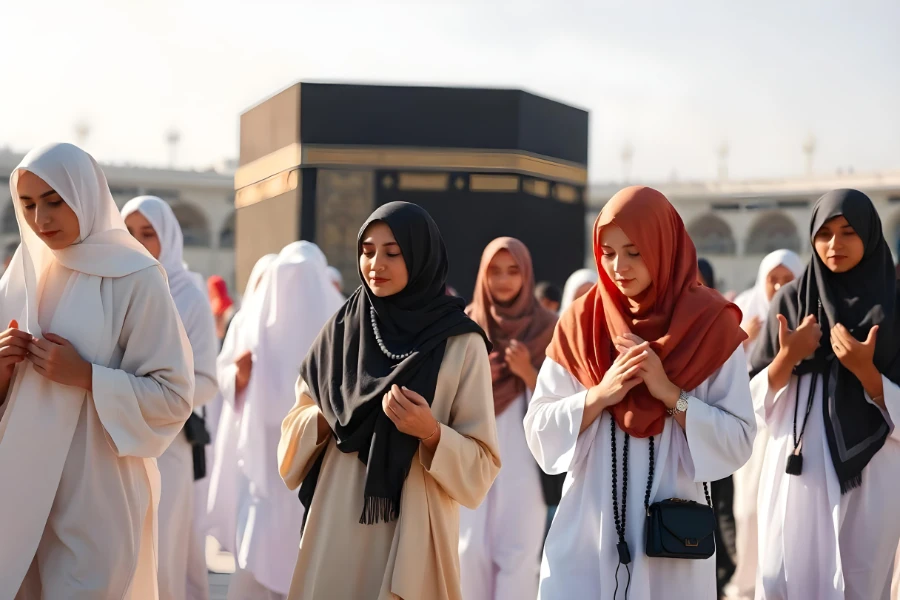
When pilgrims are in this special state, they should not do these things:
- Cut, pull out or shave hair
- Cut nails
- Put on makeup or perfume
- Have sexual relations
Leaving Ihram
After completing all the rituals of Hajj or Umrah, men should shave their heads. Women can cut a small piece of their hair, but they are not allowed to shave their heads.
Makkah Rules for Women
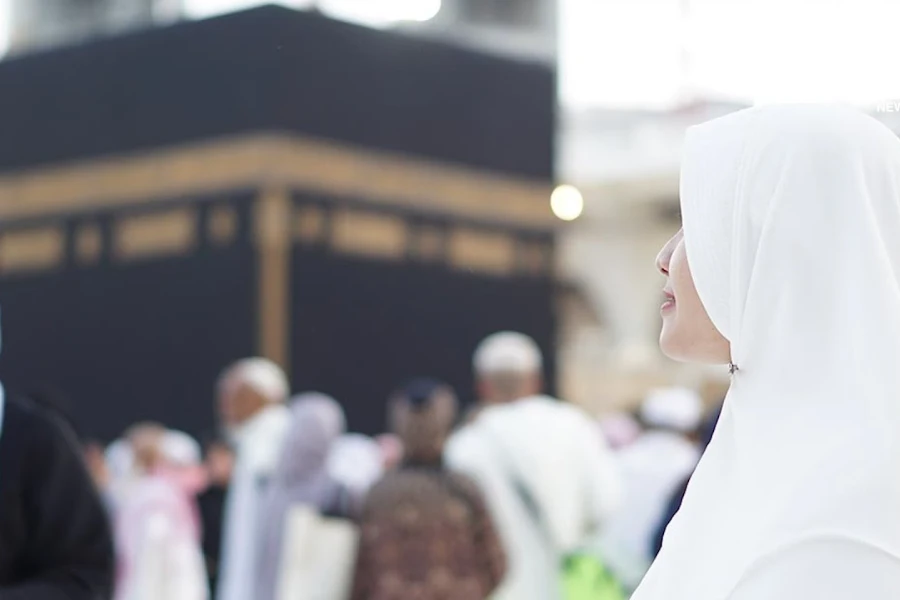
In Saudi society, men and women who are not related are often kept apart. During Hajj and Umrah, men and women mix freely as they go into the Grand Mosque and walk around the Kaaba together, doing Tawaf, even when it’s crowded. So, be careful of men who might push or shove you.
Women should be careful not to upset local feelings. This means they should travel with a male guardian or a tour group (if they are over 45 years old) and should not smoke in public places. Women are not allowed to drive in the Kingdom. When saying the Talbiyah chant to start ihram, women should pray softly so they don’t draw attention to themselves. When praying in the mosque, women should stay with their male family member or tour group and not pray next to a man they don’t know. There is a special place for women to pray.
Rules for Women during Hajj
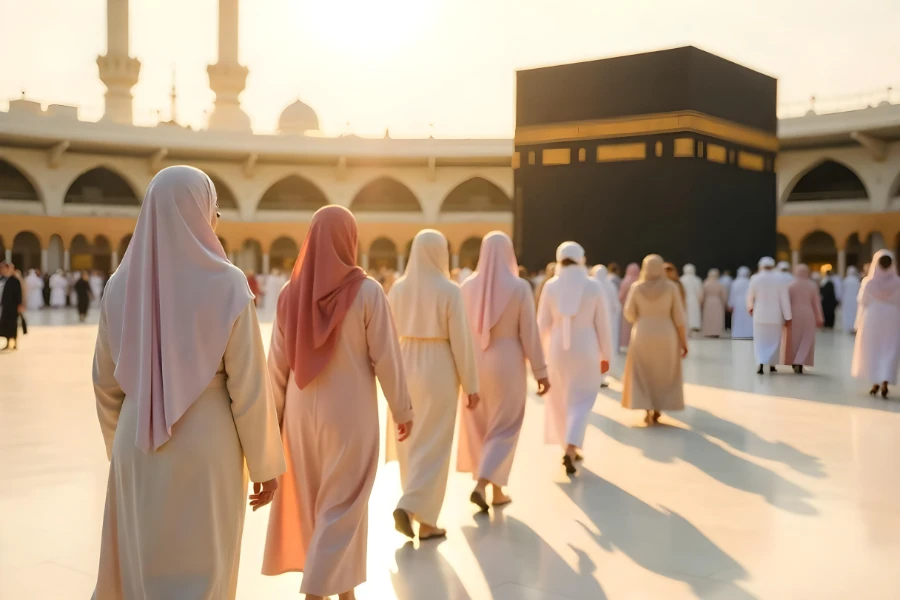
Here is some advice and rules for women who want to go on Hajj. Here are some things that can help make your Hajj accepted. The Prophet (peace and blessings be upon him) said, “A Hajj that is accepted brings a reward of nothing less than Paradise. ” (This is agreed upon by scholars. )
1. Being sincere to Allah is essential for any act of worship, like Hajj, to be valid and accepted. Be honest with Allah during your Hajj and avoid trying to impress others. Trying to show off can ruin your good actions and lead to punishment.
Following the example of the Prophet (peace be upon him) and doing things as he taught is the second requirement for our actions to be accepted. The Prophet (peace be upon him) said, “Anyone who does something not in line with our way will have it rejected. ” This is reported by Muslims. This means you should learn the rules of Hajj by following the teachings of the Prophet (peace be upon him). Use helpful books that are based on true information from the Quran and the Prophet’s sayings.
2. Be careful of both big and small acts of putting others with Allah, and be cautious of all types of sins. Major shirk means that a person crosses the limits of Islam, their good actions don’t count anymore, and they could face punishment. Minor shirk means that a person’s good actions become worthless, and they may face punishment. Sin means that he could get in trouble.
3. A woman cannot travel for Hajj or anything else without a mahram. The Prophet (peace and blessings be upon him) said, “No woman should travel without a mahram. ” This rule is widely accepted. A mahram is a husband or any man that a woman can never marry because they are related by blood, breastfeeding, or marriage. This is one of the requirements for women to do the Hajj. If a woman does not have a male relative to travel with her, she does not need to go for Hajj.
4. A woman can wear any clothes she wants when she enters ihram, like black or any other colour, as long as she doesn’t wear clothes that are flashy or showy. She should avoid tight, see-through, short, thin, or fancy clothes. Women should be careful not to wear clothes that look like men’s clothes or those worn by non-Muslims. So, we know that there is no proof that ordinary people choose specific colours like green or white for women to wear in ihram. This is just an innovation that is not supported by evidence.
5. If a woman gets her period after doing tawaf but before she does sa’i, she should complete the other rituals and do sa’i even while she is menstruating, because being pure is not necessary for sa’i.
6. A woman can take pills to delay her period so she can complete the Hajj
rituals, as long as it doesn’t harm her health.
7. Women who are on their period or bleeding after having a baby do not need to do the farewell tawaf. This is one of the rights that shari’ah gives to women. Women on their period can return to their families even if they haven’t done the farewell tawaf. So, it’s good to thank Allah for this permission and blessing.
Advice for Staying Comfortable and Safe
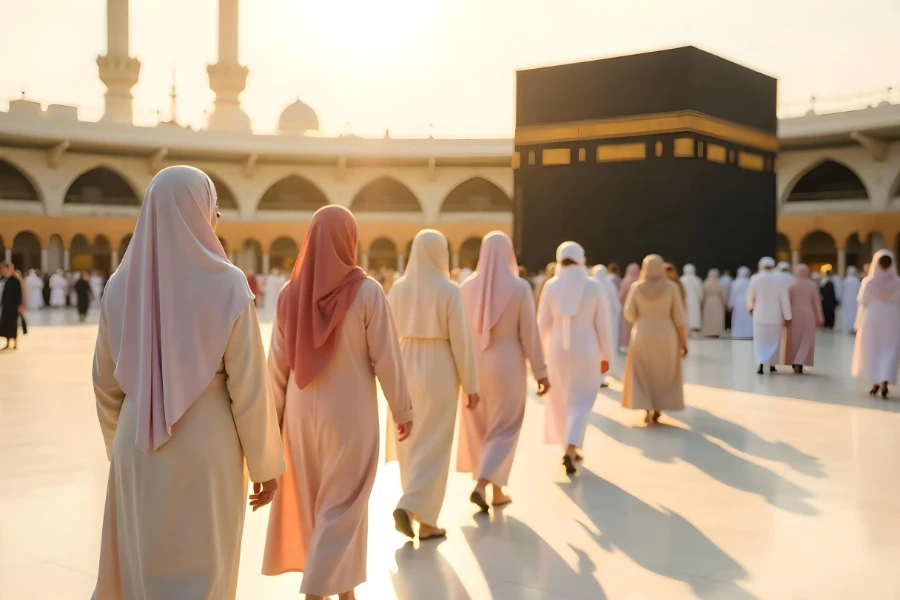
If you’re going to Hajj or Umrah, make sure to wear comfy shoes because you will be walking a lot.
- It’s a good idea to wear slip-on shoes because you’ll need to take them off and put them back on inside the mosque.
- Be careful of thieves who steal wallets and bags, especially near Haram. Keep your important things in the hotel safe and only take the money you need for that day.
- Hajj officials say that due to the heat, large groups of people, and the chance of getting sick, Pregnant women, older people, and children under 12 should not go on Hajj.
- Pilgrims should drink enough water and stay out of the sun for a long time.
Conclusion
Getting ready for Hajj or Umrah means doing both spiritual and practical preparations to make the trip smooth and meaningful. Wear the right Ihram clothes, follow the important rules and rituals, and be aware of cultural customs, especially for women. Wearing good shoes and taking care of your things will make it easier for you to walk during the pilgrimage. Make sure to drink enough water and don’t push yourself too hard, especially when it’s hot. Above all, take this important journey with honesty, humility, and respect for the traditions. I hope your trip is meaningful and appreciated.





